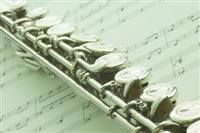 There are a lot of things to consider when buying a used band instrument like a flute, clarinet , trumpet, trombone , or saxophone from someone other than a retail music store. While private sales may be a way to get a really good price on a band instrument, they are not always the cheapest way to go. There are pros and cons to purchasing instruments from both retailers and from private individuals and each of these will be discussed in this article.
There are a lot of things to consider when buying a used band instrument like a flute, clarinet , trumpet, trombone , or saxophone from someone other than a retail music store. While private sales may be a way to get a really good price on a band instrument, they are not always the cheapest way to go. There are pros and cons to purchasing instruments from both retailers and from private individuals and each of these will be discussed in this article.
Buying From A Music Instrument Store
Pros:
- Retailers generally will not sell a used instrument unless they are sure it is in good playing condition. It is likely that any instrument purchased from a music store has already been repaired and is ready to use.
- Repairing the instrument is easier. You already will know where the store is, they will already have an account with your name on it, and you can be confident that they will be able to get replacement parts.
- Most retail stores offer a limited warranty or a repair and replacement insurance coverage. If the instrument is damaged or stolen while under an R&R contract it will usually be repaired or replaced free of charge.
Buying From A Music Instrument Store
Cons:
- Prices are generally a bit higher than you might pay in a private sale and you will almost always have to pay sales tax.
Buying From A Private Individual
Pros:
- Cheaper prices (but always check to see what the same instrument would cost at a retail store before buying)
- More selection, especially if you expand your search to include online auction houses like Ebay. Just remember that using such auctions to purchase a new instrument can bring with it some unique risks.
Buying From A Private Individual, Ebay, or Craigslist
Cons:
- Possibility of damage or needed repairs before the instrument can be used in class. Sometimes these repairs can be as much or more than the price you paid for the instrument itself! Be especially wary of used flutes, clarinets , and saxophones, where the pads have yellowed or appear dried out.
- No repair service available and no warranty.
- Older instruments and some brands of new instruments can be very expensive to fix and find parts for. You don't want to buy an instrument that can no longer be repaired.
In general, buying a used musical instrument should be a happy, proud time in a family's life. Spending a few extra dollars at the beginning of a students musical career can pay back large dividends later. Whether you buy a used musical instrument from a local retailer or from a private party, remember the purpose you are buying it for, to start your student down the road toward musical excellence.